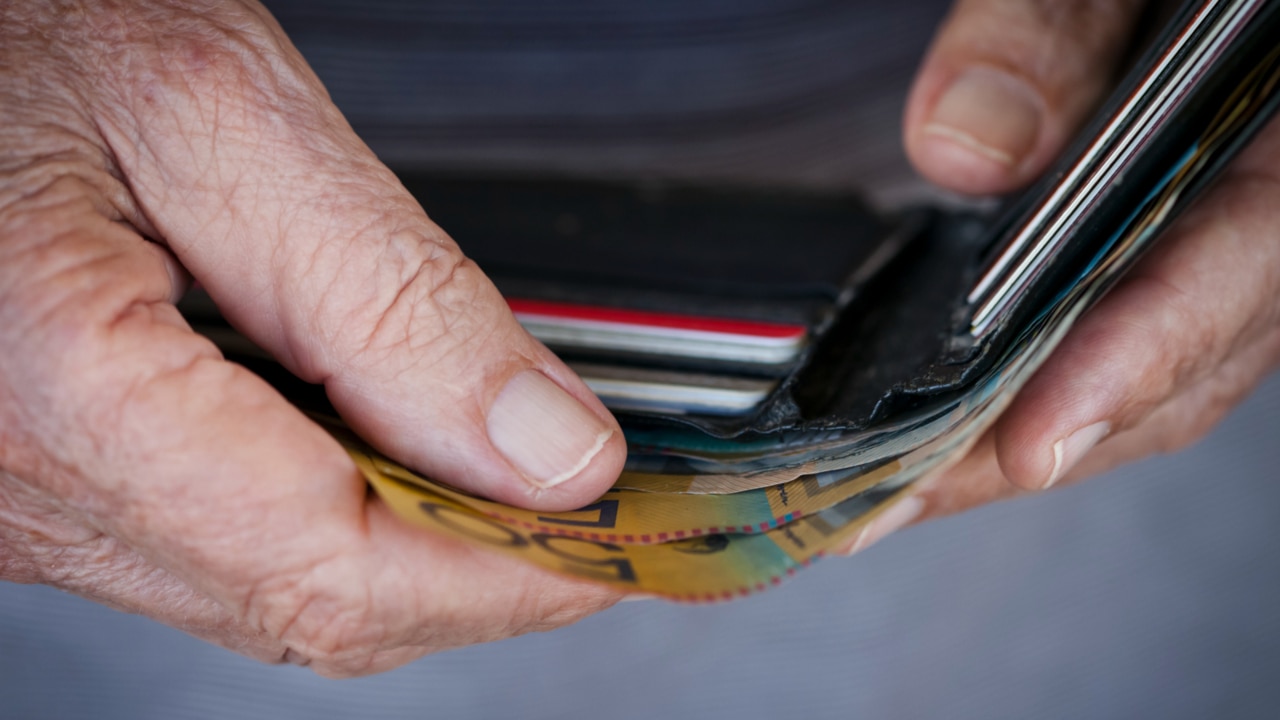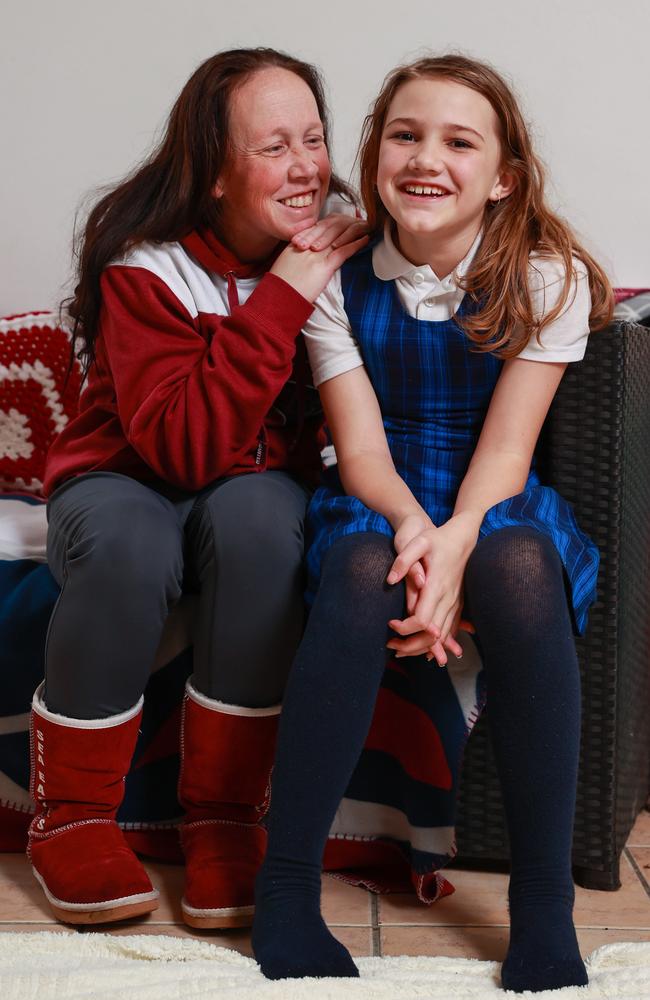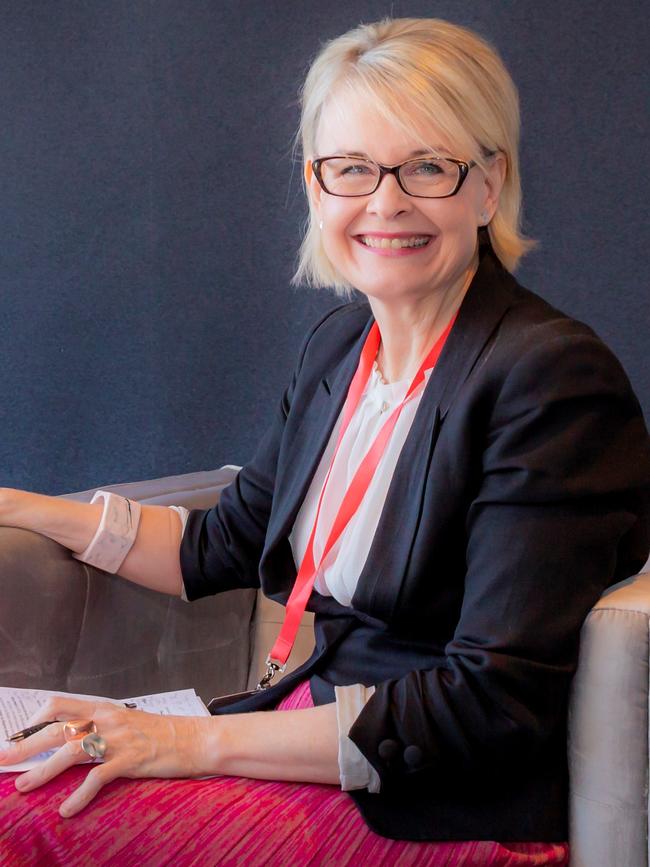Experts reveal NSW families skipping meals to deal with cost of living
Australia’s cost of living crisis has been laid bare, with new research showing that people in low-income households are skipping meals and struggling to keep a roof over their head.

NSW
Don't miss out on the headlines from NSW. Followed categories will be added to My News.
Our cost of living crisis is forcing desperate families to skip meals, live in overcrowded homes and pray for a win in the meat raffle just to get by.
But our poorest families don’t even seem to be aware of emergency government relief packages designed to help them get through.
A new survey shows half of all people on low incomes or below the poverty line (about $976 weekly income excluding housing costs) struggled to pay for or had gone without essentials at least once in the past year.
The Saturday Telegraph can reveal that despite these findings, only 7 per cent of people in need are accessing the state government’s emergency cost of living measures, including just 1.6 per cent using vouchers to help them pay exorbitant energy bills.
NSW Council of Social Service chief executive Joanna Quilty said a growing number of NSW families were struggling to pay for food, healthcare, petrol, energy and accommodation. “It’s far from a bed of roses (for families),” she said.

Skipping meals was most common in southwest Sydney, parts of Western Sydney and the Illawarra, while overcrowding of homes is most common in the Blue Mountains, Ryde, outer southwest Sydney, and NSW’s Central West and Riverina areas.
Households in regional NSW and southwest and Western Sydney can’t even afford to undertake essential travel, according to a survey of more than 1000 people conducted by the NCOSS and University of Technology Sydney.
Focus group research revealed one woman living in a mobile home only had meat in her diet when she won the local pub raffle, while parents were skipping physio and speech therapy appointments for their kids.
“People are eating lots of rice, noodles and pasta to try and make the budget stretch further,” Ms Quilty said. “There is also a heavy reliance on food pantries. People are having to move really frequently, either because of rent increases or the house that they were (renting) being sold because of the property boom.
“It is pretty confronting to realise how many people are in extreme housing stress, and then also those very difficult choices that they’re making and the things that they’re doing without in order to get by,” she said.

Housing stress is defined as lower income households that spend more than 30 per cent of their income on housing costs.
The research found that housing stress for low-income households is worst in Sutherland (89 per cent), followed by the northern beaches (77 per cent) and the inner west (73 per cent).
“The northern beaches are renowned for the relaxed lifestyle and the fact that it’s such a beautiful location,” Ms Quilty said.
“But I think this data is painting quite a different picture and suggesting that there are households really facing tough, tough circumstances and that it’s far from a bed of roses.”
The investigation also reveals an appalling lack of visibility when it comes to the state government’s cost of living measures, with only 19 per cent of people surveyed aware of the NSW government’s Cost of Living Program, and only 7 per cent having accessed these supports.
Only 11 per cent of respondents indicated awareness of the Energy Accounts Payment Assistance (EAPA) Scheme — which specifically targets low-income households to help them meet the cost of energy bills — and only 1.6 per cent had taken the step to access an EAPA voucher.
The government said 49,000 individual customer accounts received EAPA vouchers in 2020-21.
Budget papers reveal the government spent $45 million on the scheme in 2020-21, $19 million in 2021-22, and is projected to spend $23 million in 2022-23.
There are days when “Chantelle Smith”, not her real name, goes without breakfast just to make sure ends meet.
The single mother routinely has less than $50 left over each week as she deals with the spiralling cost of groceries, healthcare, fuel and housing.
The 38-year-old would love to live in a bigger place — one where there is more than one door — but for now, she is forced to live in a studio apartment with her nine-year-old daughter.
“My daughter can sometimes ask for things — and that does not happen very often — and I just have to tell her that I can’t afford it,” Ms Smith, who spends almost half her weekly income on rent, said.
“Alexa has gone without a proper school uniform before. And if there are repairs needed on the car, I’ll wait until I absolutely have to fix it.
“Like when the windscreen wipers need replacing because they are scratching the windscreen.”
“The government has delivered a pittance of what they promised families needing help with soaring power prices,” Opposition Treasurer Daniel Mookhey said.
“We need this money to get out of the government’s bank accounts. It needs to get into the wallets of people hit hard by rising power bills.”
NCOSS wants the government take action to lower energy bills and improve energy efficiency for low-income households, and to improve transport affordability for vulnerable groups, including reducing car licensing and rego costs.
It is also asking the government to make it easier for people experiencing hardship and disadvantage to access rebates and schemes, and to increase social housing with at least 5000 additional social homes per annum.
The NSW government said it continues to promote the energy rebates and EAPA through targeted print, television and social media campaigns.
NSW customers can use the Service NSW Savings Finder to access over 70 rebates and savings here or by calling Service NSW on 13 77 88, or visiting a local Service NSW Service Centre.
Got a news tip? Email weekendtele@news.com.au




